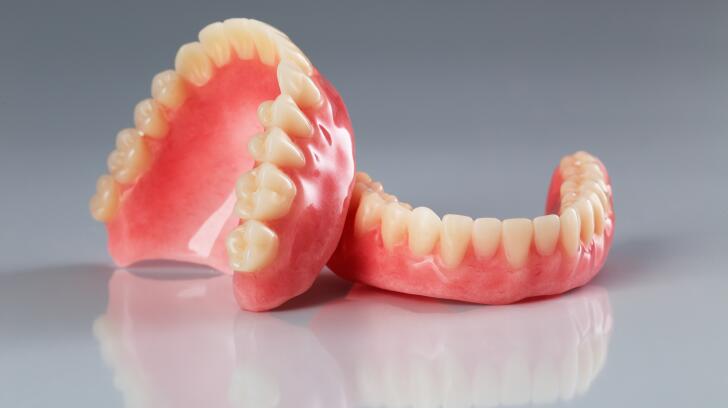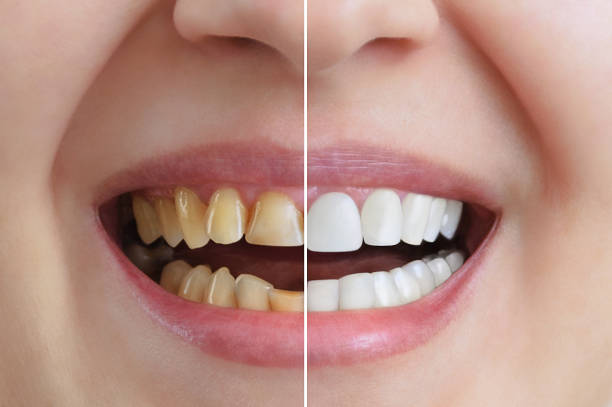Missing teeth can significantly affect your general wellbeing and self-worth. Dentures and implants can deal with tooth loss, thus regaining your smile and good oral health. The correct option is based on various aspects like preference, cost, and the condition of the rest of your teeth and jawbone. Below are the advantages and the limitations of both dental solutions for you to determine the best option.
Dentures
Dentures are an artificial gadget aided by the hard and soft tissues resulting from your lost teeth or tooth. They are available in two forms:
- Partial dentures – Applied if you are left with healthy and natural teeth.
- Complete dentures – Utilized if most or your entire teeth are missing.
Dentures are created by determining first the imitation of your lower or upper gums or both if you require a replacement of your entire teeth. Your dentist will examine the positioning and bite of your lower and upper jaws to ensure that the fitting of your dentures enables maximum speech and chewing. An initial set of dentures is usually developed in a lab and taken to your dentist, who places them in your mouth. Your dentist performs an alignment or alteration before creating the last set of your dentures. Dentures are designed to resemble your natural teeth and gums, supported by a unique form of adhesive that attaches them to your gums.
Dental Implants
Dental implants are a long-lasting solution to your tooth loss where the titanium implant is put into your jaw and integrates with the jawbone, substantially displacing your tooth root. A dental implant is developed by removing an impaired root. A hole is then drilled into your jawbone after extracting your root. An artificial metal root known as the post is installed inside the bone. The post tip is installed with a crown after a bone develops around it to support it firmly. It may take several months before fitting an abutment to the post, which is a section where the crown is usually installed. In certain instances, the abutment is installed after the implantation of the post. The crown is the last stage, which includes a prosthetic tooth resembling nearby teeth being fixed on the abutment.
Functionality
Dental implants resemble your natural teeth. Therefore, you regain the normal functioning of your teeth after full recovery. They integrate with your bone and inhibit your bone, enhancing your jaw density and strength. On the other hand, dentures are more delicate than implants and are susceptible to breakage. You may also have challenges chewing normally or biting solid foods. You may also experience denture slippage due to bone loss leading to replacement or realignment of your dentures.
Cost

Dental implants are usually costly. However, they may be a better option because they are a permanent dental solution. You are also not required to pay for other gadgets every five to seven years or incur the expense of refilling your dental dentures. However, the replacement cost may be more than new implants. Alternatively, you can opt for Invisalign invisible braces, which prove the development of technology to enhance the cosmetic dentistry procedure. The Invisalign cost is affordable for individuals seeking to align their teeth and achieve a perfect smile.
Appearance
The crown of dental implants resembles your natural teeth, which are applied to secure and restore your tooth after a root canal. The contemporary dentures resemble your teeth. However, your jawbone moves and changes after a while, affecting your jawline’s appearance.
Comfort
In typical cases, dental implants are barely broken or shifted since they usually function and feel like your natural teeth. Immediately after your crown fitting, you can regain your standard teeth functionality such as drinking, eating, and speaking. On the other hand, dentures are accustomed to shifting, and food particles are trapped under your artificial device. As a result, you need to remove and effectively clean them every night.
Based on the above variations and comparisons between dentures and dental implants, you can decide on the best option with the help of your dentist. Implants may be expensive, but they will provide you with a long-lasting solution than dentures, which may need replacements or adjustments after some time. However, dental implants may not be your best option precisely if you do not have a healthy jawbone density. It would be best to determine your priorities and goal of having a dental solution. It will enable you to make an informed decision in choosing between dentures or dental implants as a dental solution.











